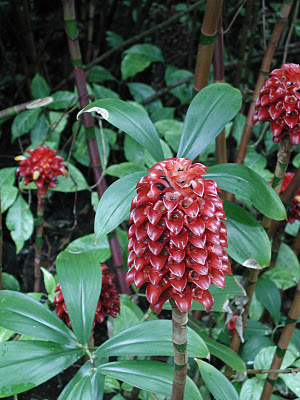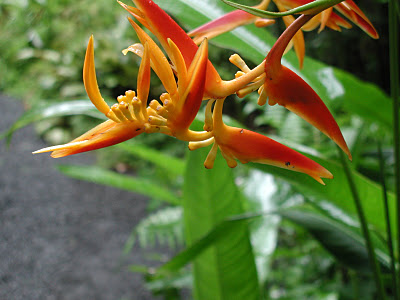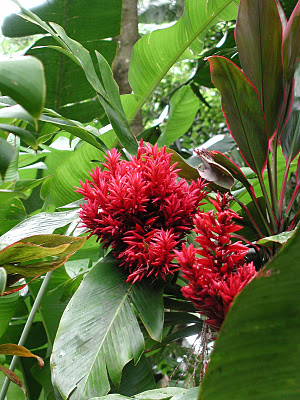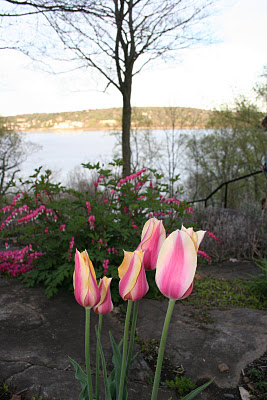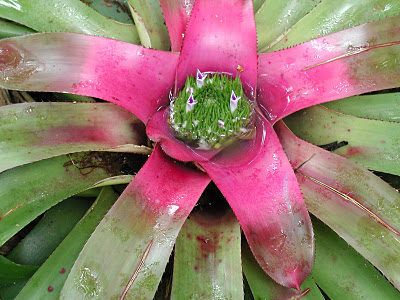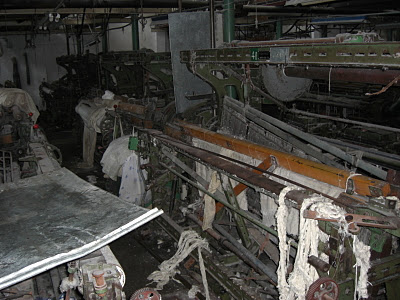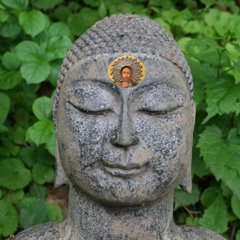I have mentioned before that we all tend to carry our past around like a stone. It often becomes a burden that weighs us down, and a reason to fault ourselves. Speaking as a recovering alcoholic, I know this aspect of existence more intimately than I'd like to.
This weekend I described it to Neal thus: we receive the water of our lives--the flowing, constantly mutable series of events and impressions that arrive on our perceptual doorstep-and the first thing we do is take the dry, dusty lime and sand of our previous impressions and associations and mix them into it.
What we end up with is cement.
We like to do this, because by making cement out of life as it arrives, we think we are getting something--if you'll excuse the pun--more concrete that way. Something lasting, something that will serve us in the future, because we own it.
As if we could own anything--the air we breathe, the water we drink, the land we tread on.
We don't see that by making concrete, we are actually just creating more weight to carry. If we just let the water be water, we're better off. If we have to carry anything, better we carry water than concrete. At least water can quench our thirst. All concrete can do is wear us out.
Don't get me wrong. We all need a foundation upon which to build, but the foundation should not be a set of static concrete blocks laid down in a rigid square. The foundation of practice is in the body. In other words, the establishment of the beginning of where we come from within the present state of sensation is where we build foundation. If there is a rock on which we build our church, this would be it. Not rocks made of previous experiences, good or bad, which we want to cling to.
The body is our continent, the place where our inner civilization arises. Conversely, our emotions are the continental weather: wind and rain, drought, tornadoes, heat, and ice. The weather is force: motive, exciting, compelling. Every emotional event seems utterly convincing and exciting.
Unfortunately, we constantly mistake the weather for the continent. We want what we consider to be the "good" weather in our lives to be permanent. And because we generally lack any intelligent discrimination, even destructive elements of our emotional life such as resentment and jealousy easily become "good"in our eyes.
So we desperately cling to our likes and dislikes, our loves, our hatreds, a thousand other emotional reactions. Unfortunately, by attempting to turn them into something solid, we twist them out of shape. When you try to tie something down that by its very nature needs to be in movement, it will eventually wither and die, no matter how hard you try to nourish it.
The movement needs to be constant, it needs to be accepted, but we cannot allow ourselves to become the weather. Unless the feet of our mind are firmly rooted in the soil of the continent, this emotive force drags us in every direction willy-nilly. Gurdjieff describes a man fallen prey to the vissitudes of his emotional weather both in the last chapter of Beelzebub and in Views From the Real World.
It would be helpful for us to begin to really discriminate between the continent of body and the weather of emotion by applying our intelligence as third force. It's this three-centered balance within ordinary life that can help us discover what Trungpa called "The Open Way:" a way defined by warmth and compassion, intelligence and engagement, and perhaps above all, a right self-valuation that affirms our essential worth, even under the most adverse of changing circumstances.
Ultimately, if we don't tinker with the water of our life--mix in the sterile dryness of our attitudes and harden it--the water of life becomes a medium of support. We float on the water of our entire life--all the impressions we have ever had--and let them buoy us up in this present moment.
There's a true joyfulness in this, even in the midst of the trials we are all required to face.
So: let the water be water.
And may your trees bear fruit.


